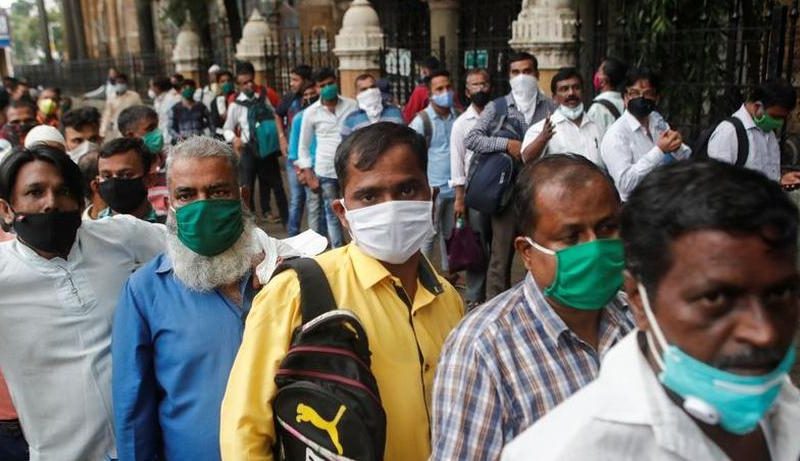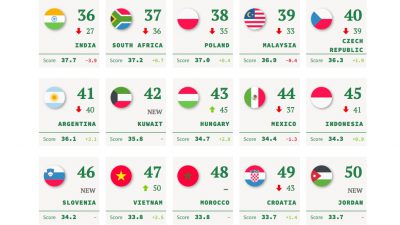
|
The shock of the COVID-19 pandemic has had a strong impact on the growth of the world economy. In many areas, although the reality is not as severe as originally warned, the slow recovery has forced countries to work harder in their efforts to overcome the current crisis. |
|
The Eurozone economy has seen a “free fall” of proportions not seen since the Great Depression in the 1930s. According to new data released by the International Monetary Fund (IMF), it is forecast that the economy of the region will decline by 8.3% this year. This figure is somewhat more positive than the forecast in June (down 10.2%), but this is still an historic shock for the Eurozone economy. While there is no medical solution for the pandemic, the IMF has warned the recovery momentum of the Eurozone economy will be slower, reaching only 5.2% growth by 2021, weaker than the 6% rate in its previous forecast. Spain is the country hit hardest. Its GDP was forecast to drop by 12.8% this year. Italy and France may also seeGDP reductions of 10.6% and 8.3%, respectively. The latest economic data shows that, by the beginning of 2022, Germany will be able to recover back to the level it was at before the crisis. The IMF had warned that the situation would be worse, and at the same time warned about the heavy spending of European countries. A recovery package worth EUR750 billion is considered a solution to help the Eurozone economy recover. The East Asian and Pacific regions are also facing a series of unprecedented challenges. According to the forecasts of the World Bank (WB), the pandemic could cause economic growth in this region and China to fall to its lowest level in more than 50 years, pushing 38 million people back into poverty. According to the WB, the region in 2020 is estimated to grow by only 0.9%, its lowest level since 1967. Meanwhile, economic growth rate in China is forecast at 2% this year thanks to the fact that government spending increased, exports rebounded sharply and new infections have been low since March. According to WB Vice President for East Asia and Pacific Victoria Kwakwa, countries in the region have made a number of smart policy choices that could reduce the impact of the epidemic, such as investments in their testing and contact tracing capacity, and expanding social protection programmes to support both the poor and informal economy. In Southeast Asia, the Indonesian economy could decline more strongly than expected if the COVID-19 epidemic is not controlled. Singapore has introduced three spearheads in its new economic strategy, including a doubling of efforts to promote inclusive growth and pave the way for the next round of growth. The country has launched four stimulus packages worth nearly SGD100 billion to support people and businesses. Malaysia has also taken measures to help both businesses and people deal with the economic downturn. Accordingly, it created economic stimulus packages worth about US$73 billion with the expectation that growth in 202will rise from 5.5% to 8% compared with the negative growth in this year. The pandemic has seriously affected the world’s leading economy, causing tens of millions of workers in the US to lose their jobs and the GDP to plummeted by 31.7% in the second quarter. President Trump’s administration has proposed a bailout package worth US$1.8 trillion to help reduce the negative impacts that the pandemic has had on the economy. This bailout package is considered a “powerful tool” to help businesses keep their employees, prevent a wave of bankruptcy and ensure support for workers who lost their jobs. As the region most affected by the pandemic, the macroeconomic outlook of Latin America continues to be gloomy. The region’s top economies all recorded a significant decline in economic growth. The economies with the strongest decline in the region are the Caribbean island nations, which are largely dependent on tourism. The global economic picture is less dire than the warnings given, but still extremely gloomy. IMF Managing Director Georgieva said that the “calamity is far from over” and that governments should not withdraw supports prematurely. Rich nations should do “whatever it takes” and poor nations should do “whatever is possible” to overcome this crisis, she added. Source: Nhan Dan Online |

